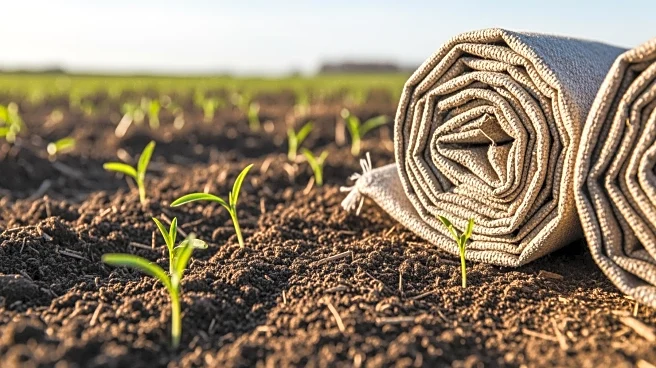What's Happening?
Regenerative agriculture is gaining popularity as a method to increase yields while reducing costs, though it presents complex challenges. Dr. Erin Silva, an expert in organic and sustainable cropping
systems, highlighted the difficulty in measuring the impacts of these practices due to their biological nature across diverse ecosystems. Despite these challenges, regenerative practices, such as cover crops, are becoming more prevalent, with 18 million acres of U.S. cropland adopting them. Additionally, Delta Plastics is promoting sustainability by recycling grain bags, transforming them into products like trash bags and resins, offering farmers a practical and free solution to reduce landfill waste.
Why It's Important?
The adoption of regenerative agriculture practices and recycling initiatives reflects a growing trend towards sustainability in American farming. These efforts can lead to improved soil health, reduced environmental impact, and cost savings for farmers. By recycling grain bags, farmers can contribute to waste reduction and resource conservation, aligning with broader environmental goals. Such initiatives can enhance the agricultural sector's sustainability, potentially influencing policy and consumer preferences towards eco-friendly practices.
What's Next?
As regenerative agriculture and recycling practices gain traction, farmers may increasingly adopt these methods, potentially leading to broader industry shifts. The success of these initiatives could inspire further innovations and investments in sustainable agriculture. Policymakers might consider supporting these practices through incentives or regulations, promoting environmental stewardship and sustainable growth in the agricultural sector.









